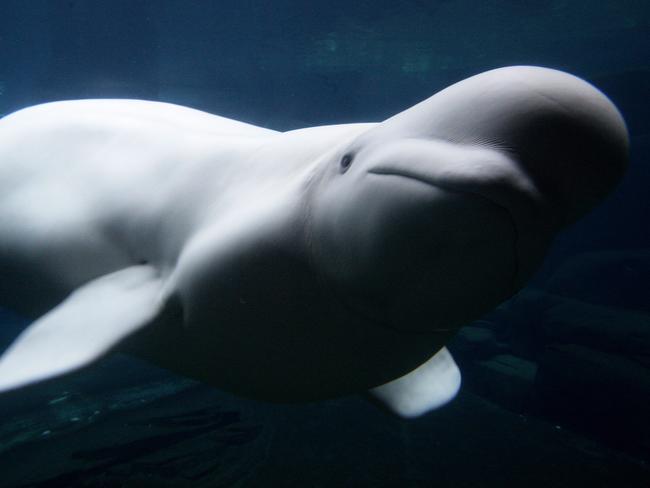Dolphins, beluga whales squeal with pleasure, scientists say
DOLPHINS and whales literally squeal with pleasure, according to scientists who claim to have shown that the sound expresses cries of delight.
DOLPHINS and whales literally squeal with pleasure, say scientists who claim to have shown that the sound expresses emotion.
Initially, squeals emitted by the animals when offered tasty fish treats were thought to be signals communicating the presence of food.
But new research suggests that the sounds are simply cries of delight.
Whales and dolphins are known to squeal when they hear a whistle or buzzer associated with a food reward.
But when dolphins and beluga whales were trained to switch off a sound after making a deep dive, they announced a successful mission by producing the same squeals.
It was the equivalent of a human whoop of triumph, according to US cetacean expert and author Dr Sam Ridgway.

“The (squealing) behaviour had transferred over to another stimulus that wasn’t food”, he said.
To investigate further, he and a team of fellow scientists analysed decades of recordings of experiments involving dolphins and beluga whales.
The aim was to see if the delay before a squeal was uttered mirrored the release of dopamine, a brain chemical that stimulates sensations of pleasure.
Dopamine release takes 100 milliseconds (ms), so if the delay between a reward promise and a squeal was longer than this amount of time it would suggest a connection.
In dolphins, the delay was 151 ms and in beluga whales 250 ms.
“We think we have demonstrated that it (the victory squeal) has emotional content”, said Dr Ridgway, president of the US National Marine Mammal Foundation, whose findings appear in the Journal of Experimental Biology.



